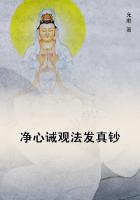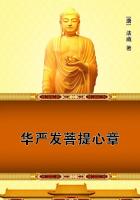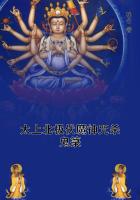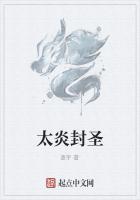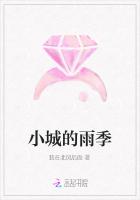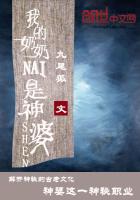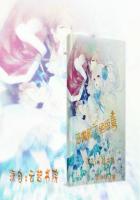These merits have ceased to be disputed, but, though a loyal Tennysonian, I have never quite been able to reconcile myself to Maud as a whole. The hero is an unwholesome young man, and not of an original kind. He is un beau tenebreux of 1830. I suppose it has been observed that he is merely The Master of Ravenswood in modern costume, and without Lady Ashton. Her part is taken by Maud's brother. The situations of the hero and of the Master (whose acquaintance Thackeray never renewed after he lost his hat in the Kelpie Flow) are nearly identical. The families and fathers of both have been ruined by "the gray old wolf," and by Sir William Ashton, representing the house of Stair. Both heroes live dawdling on, hard by their lost ancestral homes. Both fall in love with the daughters of the enemies of their houses. The loves of both are baffled, and end in tragedy. Both are concerned in a duel, though the Master, on his way to the ground, "stables his steed in the Kelpie Flow," and the wooer in Maud shoots Lucy Ashton's brother,--I mean the brother of Maud,--though duelling in England was out of date. Then comes an interval of madness, and he recovers amid the patriotic emotions of the ill-fated Crimean expedition. Both lovers are gloomy, though the Master has better cause, for the Tennysonian hero is more comfortably provided for than Edgar with his "man and maid," his Caleb and Mysie.
Finally, both The Bride of Lammermoor, which affected Tennyson so potently in boyhood ("A merry merry bridal, A merry merry day"), and Maud, excel in passages rather than as wholes.
The hero of Maud, with his clandestine wooing of a girl of sixteen, has this apology, that the match had been, as it were, predestined, and desired by the mother of the lady. Still, the brother did not ill to be angry; and the peevishness of the hero against the brother and the parvenu lord and rival strikes a jarring note. In England, at least, the general sentiment is opposed to this moody, introspective kind of young man, of whom Tennyson is not to be supposed to approve. We do not feel certain that his man and maid were "ever ready to slander and steal." That seems to be part of his jaundiced way of looking at everything and everybody. He has even a bad word for the "man-god" of modern days, -"The man of science himself is fonder of glory, and vain, An eye well-practised in nature, a spirit bounded and poor."Rien n'est sacre for this cynic, who thinks himself a Stoic. Thus Maud was made to be unpopular with the author's countrymen, who conceived a prejudice against Maud's lover, described by Tennyson as "a morbid poetic soul, . . . an egotist with the makings of a cynic."That he is "raised to sanity" (still in Tennyson's words) "by a pure and holy love which elevates his whole nature," the world failed to perceive, especially as the sanity was only a brief lucid interval, tempered by hanging about the garden to meet a girl of sixteen, unknown to her relations. Tennyson added that "different phases of passion in one person take the place of different characters," to which critics replied that they wanted different characters, if only by way of relief, and did not care for any of the phases of passion.
The learned Monsieur Janet has maintained that love is a disease like another, and that nobody falls in love when in perfect health of mind and body. This theory seems open to exception, but the hero of Maud is unhealthy enough. At best and last, he only helps to give a martial force a "send-off":-"I stood on a giant deck and mixed my breath With a loyal people shouting a battle-cry."He did not go out as a volunteer, and probably the Crimean winters brought him back to his original estate of cynical gloom--and very naturally.
The reconciliation with Life is not like the reconciliation of In Memoriam. The poem took its rise in old lines, and most beautiful lines, which Tennyson had contributed in 1837 to a miscellany:-"O that 'twere possible, After long grief and pain, To find the arms of my true love Round me once again."Thence the poet, working back to find the origin of the situation, encountered the ideas and the persons of Maud.
I have tried to state the sources, in the general mind, of the general dislike of Maud. The public, "driving at practice,"disapproved of the "criticism of life" in the poem; confused the suffering narrator with the author, and neglected the poetry. "No modern poem," said Jowett, "contains more lines that ring in the ears of men. I do not know any verse out of Shakespeare in which the ecstacy of love soars to such a height." With these comments we may agree, yet may fail to follow Jowett when he says, "No poem since Shakespeare seems to show equal power of the same kind, or equal knowledge of human nature." Shakespeare could not in a narrative poem have preferred the varying passions of one character to the characters of many persons.
Tennyson was "nettled at first," his son says, "by these captious remarks of the 'indolent reviewers,' but afterwards he would take no notice of them except to speak of them in a half-pitiful, half-humorous, half-mournful manner." The besetting sin and error of the critics was, of course, to confound Tennyson's hero with himself, as if we confused Dickens with Pip.
Like Aurora Leigh, Lucile, and other works, Maud is under the disadvantage of being, practically, a novel of modern life in verse.

